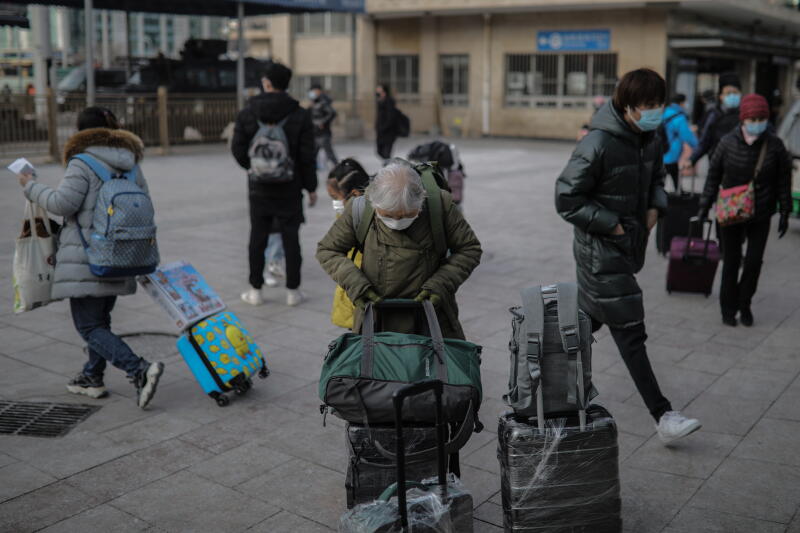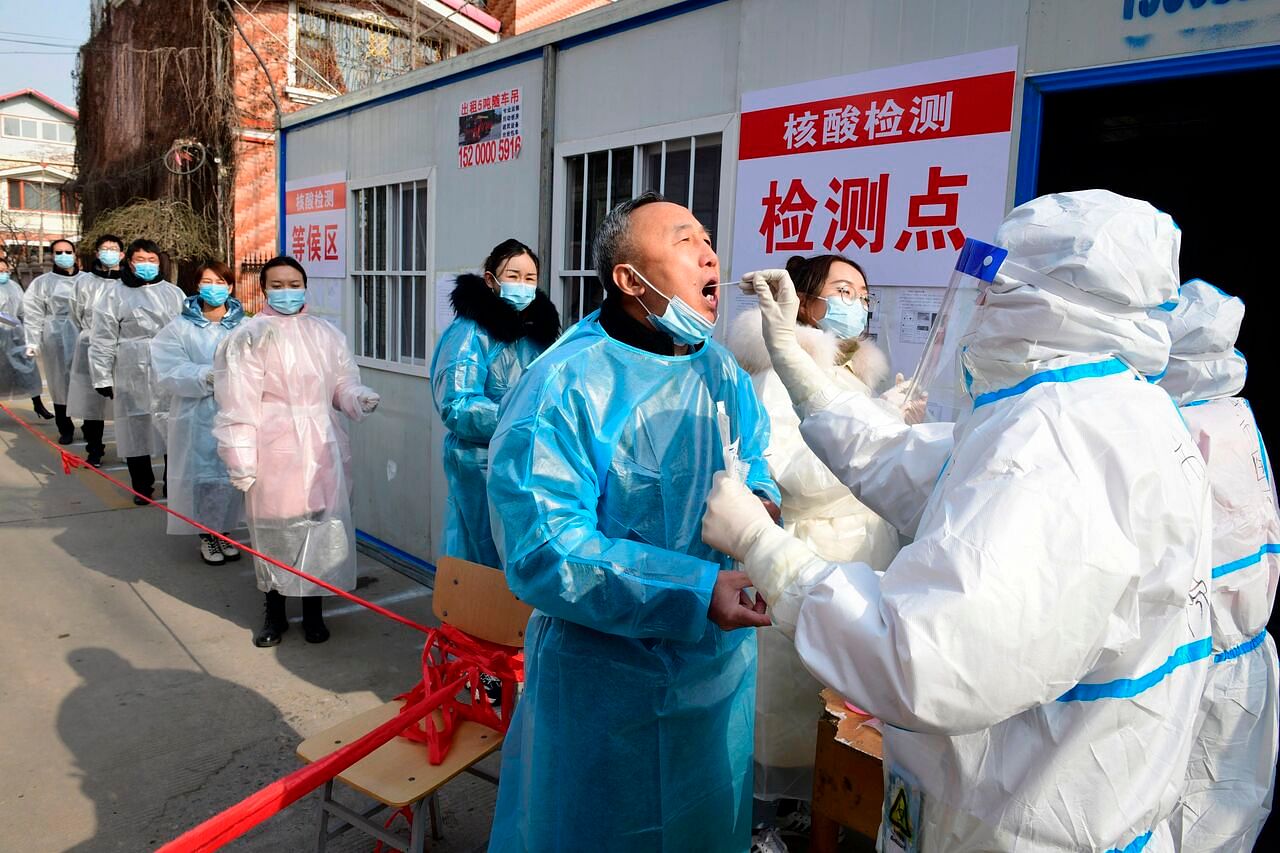More domestic travel restrictions as China battles Covid-19 resurgence
Sign up now: Get insights on Asia's fast-moving developments

Residents have been discouraged from travelling during the holidays amid fears of a large-scale resurgence of the coronavirus.
PHOTO: EPA-EFE
Follow topic:
BEIJING - China is on edge, with new cases of Covid-19 continuing to show up in several northern cities even as the authorities put new control measures in place ahead of the Chinese New Year holiday, when millions of people are expected to be on the move.
Residents have been discouraged from travelling during the holidays amid fears of a large-scale resurgence of the coronavirus, which could - in a repeat of last year - bring the barely recovered economy to a screeching halt.
New infections have shown up in five regions - Beijing, Hebei, Jilin, Liaoning and Heilongjiang - with 141 new cases reported on Wednesday (Jan 20).
This brings the total number of active infections to 2,342. Fifty-eight new asymptomatic infections, which are kept on a separate tally, were also reported on Wednesday.
The health authorities on Wednesday announced that those wanting to return home during the upcoming holidays, which begin on Feb 12, will have to present to local authorities a nucleic acid test taken within seven days.
Those entering rural villages will have to go through a 14-day isolation period, when they will not be allowed to move around outside their homes or gather in crowds.
Officially, the Spring Festival holiday runs from Feb 11-17 but the officially designated 40-day travel season will begin on Jan 28 and go on till March 8.
Although the Chinese government has provided free Covid-19 testing for those made to undergo compulsory testing, Spring Festival travellers will have to foot the nucleic acid test bill themselves, said Dr Wang Bin of the National Health Commission.
The health authorities in capital Beijing are also nervously watching the continuing outbreak in neighbouring Hebei province while dealing with outbreaks in two Beijing districts bordering the province.
North-eastern Shunyi, close to the city's main airport, has been under a partial lockdown since cases started to surface just before Christmas last year. Residents have been encouraged to stay within the area, while ride-sharing services like Didi have been suspended from picking up passengers there.
In southern Daxing, where the city's other airport is located, 1.3 million residents have been ordered to undergo nucleic acid testing, and only those who have special permission can leave Beijing.
A popular ice-skating rink in the city also announced it will shut from Thursday to prevent the spread of the virus.
International travellers entering Beijing will now have to undergo 14 days of centralised quarantine, seven days of additional home or centralised quarantine, and seven more days of health monitoring.
Meanwhile, transport officials said in a press conference that some 407 million trips are expected over the festive period. This is a 10 per cent increase from last year, when cities went into lockdown shortly after the holidays began to contain the virus.
There is concern that while most active cases are now largely confined to the north of the country, which is going through a harsher than normal winter, this could easily change during the world's largest annual human migration.
Governments across East Asia have been torn between keeping a lid on the virus while also managing expectations during a time of year marked by family reunions and gatherings.
In Hong Kong, the authorities vacillated about cancelling New Year markets before letting them continue albeit with strict crowd control measures. In Taiwan, where the virus is largely under control, a lantern festival and New Year market were cancelled after new cases linked to a hospital cluster emerged.

<p>This photo taken on January 16, 2021 shows residents undergoing Covid-19 coronavirus tests at a makeshift testing centre inside a residential compound in Shijiazhuang, in northern Hebei province, as part of a mass testing programme after the province declared an "emergency state". (Photo by STR / CNS / AFP) / China OUT</p>
PHOTO: CNS
Meanwhile, as a vaccine roll-out continues across the country, with some 15 million already inoculated, the health commission said it would look into whether travellers who test positive for coronavirus antibodies may be allowed into the country. Currently, international travellers who have virus antibodies are barred from entering China.
"At present, we have noticed many areas overseas have started vaccination work. As part of China's prevention and control measures, we will consider these factors as more vaccination work is carried out," Dr Wang of the NHC said.
Correction note: This article has been edited to reflect the correct number of trips expected over the festive period. We are sorry for the error.

